HSBC Predicts Vietnam’s Economic Growth 6.8% in 2022
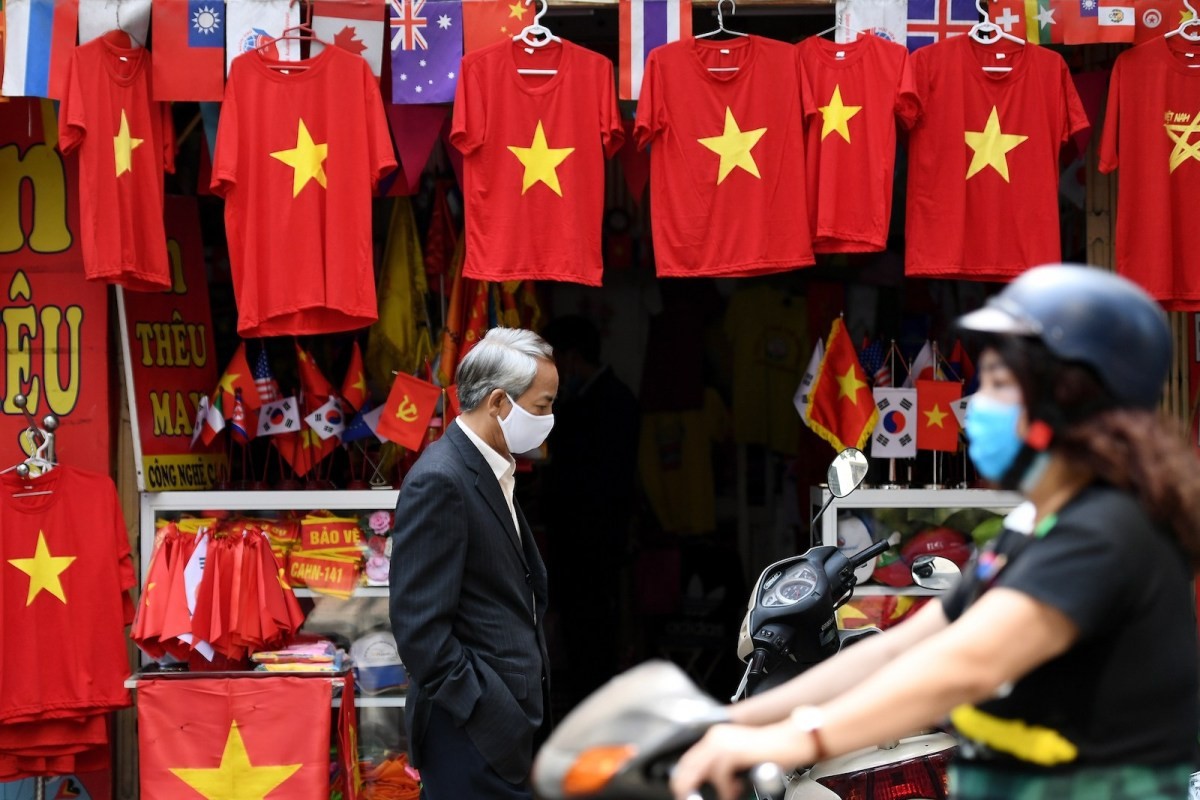 |
| Photo Credit: AFP |
HSBC Vietnam - 2021 Highlight and 2022 Outlook by Tim Evans, CEO of HSBC Vietnam.
What a year 2021 has been. We had all hoped that as the Year of Rat ended and we started the Year of the Ox, while at the same time vaccine roll out had started that we would all have a steadier year ahead. This was certainly the case for Vietnam during the first quarter of 2021 where the economy performed strongly off the back of strong export growth especially in the tech sector. We had however not anticipated the devastating impact of the new Delta variant which very soon led to large parts of the country being placed into various forms of lockdown and as a result, the economy took a very significant hit, to the point where 3rd quarter GDP numbers were the worst on record with the steepest decline since the tracking of GDP statistics started.
Foreign direct investment (FDI), Vietnam’s key driver of growth,is still robust and was only marginally impacted given the serious lockdown that the country applied in 2021.Total registered FDI from 1 January to 20 November increased 0.1% with 1,577 newly licensed projects while total implemented capital was down 4.2%. Exports for the first 11 monthsof the year were up 17.5%, thereby still registering a slight surplus.
With a pickup in domestic demand driven by increased consumer spending after removal of the lockdowns, core inflation in November increased 0.11% m-o-m and was up 0.58% y-o-ybut still remains within the target range set by the authorities.
As I look over the horizon into 2022 and the Year of the Tiger, we were all hopeful that with the strong vaccination rates across Vietnam, that we can finally start to put the Covid crisis behind us and resume the economic growth story of Vietnam. Alas, we now have a new variant in the form of Omicron which makes forecasting the future a very complex art. While much remains unknown about Omicron’s transmissibility and severity, many countries have pre-emptively re-imposed border restrictions to varying degrees which will have a knock on economic impact.
I have tended to be a glass half full person and I have always been positive on the opportunities and growth prospects for Vietnam. It is part of the reason I originally came here. The energy, the resilience, the passion and the desire of the Vietnamese to ensure that tomorrow is always better than yesterday.
Where are we now?
After a very tough few months caused by the need for severe lockdowns, we are now finally on some firmer ground. The PMI index which reflects confidence, ticked up to 52.2 in November signalling a second successive modest improvement in business conditions following a period of decline caused by the 4th Covid wave that started in April. Activity has picked up over the last few months and confidence is slowly returning though challenges remain around getting workers back into factories. Vietnam’s supply chain recovery has been impacted by widespread shortage of labour, particularly in labour-intensive sectors. According to the General Statistics Office of Việt Nam, about 1.3 million labourers returned to their hometowns from July to mid September due to COVID-19 restrictions. As a result, 17.8% of the 22,764 businesses they surveyed experienced a shortage of workers with the highest rate being recorded in the Southeast region at 30.6%. That said, new export orders have started to stabilize, as manufacturers are catching up with their backlogs of orders. Price pressures have also eased over the past month as raw material prices have started to cool.
Whether we are about to embark on a strong return to sustained growth remains to be seen. As a result of the easing of production disruptions and pent-up pressures in global supply chains, we are starting to see a bounce but we need to be mindful of any slowdown in export growth as developed markets start to move consumption from goods back to services.
We should also take a closer look at the tech sector which has had a significant positive impact on the Vietnamese economy. We are starting to see orders for consumer electronics starting to cool down a little. This is partly because during the first wave of lockdowns, households around the world spent heavily on everything from laptops to networking gear and new TVs to gaming consoles.
As a result, demand has started to subside but this has been in part offset by rising demand for industrial electronics, comprising components that feed into machinery and other production equipment. We anticipate that if the world can continue to pull out of the Covid crisis, there will be a significant capital investment cycle that will take place across the world which should ensure that demand for industrial electronics remains robust and this will benefit the Vietnamese economy.
Another key and growing contributor to Vietnam’s economic performance prior to Covid was tourism. For the Vietnamese economy to fire on all cylinders, we will need at some stage to see a resumption in tourist flows.
In 2019, Vietnam had 18M tourist arrivals and they generated a contribution to GDP of $33bio. Prior to the onset of Covid, Vietnam was forecasting 20M tourist arrivals in 2020 with a contribution to GDP of $36bio which would have represented c. 14% of total GDP. By November, Vietnam had only 140,106 foreigner arrivals, which represents a reduction of over 96%.
This revenue engine has fallen silent over the past 24 months but as the Delta wave gradually subsides alongside increasing vaccination rates, discussions are starting about potentially relaxing some travel restrictions and gradually re-opening borders. The Vietnamese tourism sector has direct implications for growth and the local job market. The challenge in 2022 will be how the Covid pandemic evolves especially with the latest Omicron variant. While Vietnam’s daily infections have fallen dramatically by 70% from their peak of in August, there are signs of surging cases again which could delay any material reopening of the tourist sector which will have a knock on effect to overall economic recovery in the year ahead.
I would like to touch upon the two areas that are important to Vietnam in a world post Covid to make sure Vietnam’s banking and finance industry will reap full potential from opportunities. These are sustainable finance and digitalisation.
Sustainable finance
2021 saw positive progress in Vietnam’s green market with more landmark deals related to sustainability. However, the green finance market is still in its early stage and therefore projects a huge potential. Vietnam receives the most FDI in ASEAN as measured by the percentage of GDP. Given the increasing focus of global companies on ESG and sustainability, they are demanding more and better quality sustainable resources in the countries where they operate.
In particular, Vietnam has seen the highest level of investment in renewable energy across ASEAN and offers the best potential for renewable capacity addition across ASEAN, with foreign investments driving growth.
The SBV has been actively developing many initiatives to support green finance flows. In October, SBV started to ask financial insitutions to comment on the the Draft Circular which will serve as a guideline for the banking sector to set up and run an environmental and social risk management system in credit activities. The Circular will take effect from 1 Jan 2022 and require all banks to submit their own internal regulation on E&S management to SBV, which could lay out a framework for green finance in Vietnam officially. By 2025, SBV plans to have at least 10-12 banks establish specialised units or departments for environmental and social risk management while 60% of banks have access to green capital and provide loans for green credit projects. SBV strongly encourages banks to develop green financing strategies independently or integrate such strategies into their annual business development plans.
This has been a crucial move to further promote Vietnam’s sustainable finance agenda. According to a survey by IFC & SBV, few Vietnamese banks have a formal policy, procedures or system to manage the environmental and social risks faced by their clients. One of the key constraints hindering the banks is the lack of specific guidelines on identifying and managing environmental and social risks in project financing.
From our observation, there’re some more challenges for the market to overcome in the next few years, including the shortage of expertise and skill gaps, the lack of consistent market standard of “green” and taxonomy, the absence of strong and measurable commitment from major market players, the maturity mismatch between the long tenor of financing demand & short tenor of funding sources, and the lack of transparent ESG data.
Some actions we suggest SBV to consider:
- Setting a clear requirement for each credit instrument so that banks can develop better green credit frameworks and progress plan for themselves.
- Building a clear framework for capital market instruments. State Securities Commission of Vietnam’s handbook to guide the issuance of green bonds is not yet a regulation.
- Setting clear targets on green credit performance for each bank, for example, outstanding green loan balances as a percentage of the total book.
- Considering higher credit growth cap towards green sectors or financial subsidies for green credits. Restrictions and/or caps on certain carbon intensive industries/sectors over a certain timeframe.
- More rewards to motivate banks on their green journeys including higher general credit growth caps for those banks that comply with or overachieve their target. Lower growth cap for those that do not as a disincentive could be an option to put into consideration.
- No or lower Required Reserve Ratios for green loan outstandings.
- Introducing climate risk stress testing of banking books, which could potentially lead to different capital requirement outcomes depending on the proportion of green lending that they undertake.
- Introducingenvironmental disclosures into financial reporting to increase accountability of banks, and visibility to key stakeholders on how this financial risk is being managed
- Setting up a thought leadership forum that brings the public and private sectors together to collaborate towards an effective green financing and climate change framework for Vietnam
Digitalisation in banking sector
2021 is a key milestone of banking sector when it comes to digitalisation progress. Partly, we have enjoyed some favourable conditions to grow. These include a young, tech-savvy population who drives demand for fintech solutions which are set to mushroom with good digital infrastructure including almost full 3G/4G network coverage and high number of smartphone users. McKinsey’s Personal Financial Services 2021 survey on the digital banking behavior of some 20,000 urban bank customers in 15 Asia-Pacific markets, including Vietnam, found the proportion of Vietnamese customers using digital banking tools at least once a month doubled between 2017 and 2021, from 41% to 82%.
The penetration rate of fintech and e-wallets in Vietnam increased from 16% in 2017 to 56% in 2021. Besides, according to Ernst & Young, 42% of Vietnamese banks are ready for the digital transformation process, while 28% have incorporated a digitalisation strategy into their business.
The Government is also proactive to support the digitalisation in banking sector. In May, SBV issued Decision No. 810/QD-NHNN on a digital transformation plan to 2025 and vision towards 2030, as a guideline for the banking sector to implement digital transformation as a priority task. Some ambitions by 2030 for Vietnam include at least 70% of its banking operations will be fully performed digitally by customers. A recent survey by SBV found that 95% of credit institutions in Vietnam are to have either implemented digital transformation strategies or be in the process of formulating them.
What makes 2021 important is that the Covid-19 has been a catalyst that helps Vietnam accelerate digitalisation of the economy in general and banking sector in particular. Pre-Covid, the digital acceptance level in Vietnam is pretty low as there is no compelling reason for the customers to sign up internet banking when everyone is comfortable with paper based instructions with wet signatures. When the first lockdown happened in April 2020, people realised the importance of internet banking and other on-line services. Approximately 85% of consumers use e-commerce apps on smartphones to shop for goods and services at least once a week, and 44% of shoppers have purchased goods and services on social channels since the pandemic began according to Ernst & Young.
At HSBC Vienam, we saw a huge jump of our internet banking usage for our trade business volume and we continued to see a fast growing demand for all our other digital platform that allows our customer to perform all their transactions. The silver lining on COVID-19 is that it has accelerated the acceptance and adoption of digital banking. What is required now is for the regulatory framework to evolve more rapidly to support the digitalisation journey.
From our observation, many banks in Vietnam have accelerated their digital agenda by digitising their internal processes like real-time trading systems and front-end channels like eKYC, QR code payment, etc. Some of them have already put such new technologies as big data, open API, blockchains or AI in their pipeline.
Such positive momentum should be maintained in 2022 as the demands of customers never stop evolving and Covid-19 is still out there. It is important for every bank to continue investing in digital banking to keep up with customers’ needs and behavior. On the other hand, there is also a need to help some people who are still apprehensive in embracing the change and concerns over cybersecurity. 71% of Vietnamese bank customers are open to purchasing banking products and services through digital channels, but only 23% have actually completed a purchase of a bank product online or through its mobile app according to McKinsey. Mindset change is not easy, but we need to address their concerns and highlight how it will assist them as they start their journey of transformation, especially in this time of pandemic.
Moving forward, many experts believe that digital transformation will be the key driver for economic recovery and development. In this context, the banking sector will have a significant role to play to contribute to Vietnam’s e-economic growth.
Looking forward to the future
So as we look past the end of the year and into the future, the HSBC Global Research team has a view that the Vietnamese economy should get back to GDP growth of 6.8% in 2022 which will be driven by a return to strong FDI investment into the market with a clear focus on the manufacturing sector which should further drive the Vietnamese export story especially as Free Trade Agreements that have been signed over the past 2 years start to bear fruit.
The continued growth of the middle class and in particular the rising affluent sector will further drive the consumer story in Vietnam which will lead changes in consumption as Vietnamese start spending more and more on leisure and travel.
Infrastructure roll out will also continue to fuel economic activity especially in the renewables/green arena given the strong ambitions made by the Vietnamese authorities following COP26 where an aspirational target of 75% of all energy created in Vietnam is to be from renewable means by 2045. This is certainly very ambitious but anyone who has followed Vietnamese history knows that it is unwise to bet against the ability of Vietnam and the Vietnamese to achieve targets and challenges they set themselves.
There are a couple of areas which we will need to keep a watchful eye on which could potentially negatively impact the economy on a go forward basis. One issue worth monitoring is the surging energy prices. As an example transport costs have risen rapidly and have become one of the main drivers for local inflation. Our current view is that a relativelygradual recovery in domestic demand might offset higher energy prices, and therefore we expect inflation to rise to 3.5% for 2022 which remains below government thresholds.
The big swing factor is sadly still Covid but my personal view is that on a go forward basis, any outbreaks that need to be brought under control, will be done through targeted restrictions or lockdowns, rather than the blanket restrictions that many countries undertook in 2021 with a strong negative impact on their respective economies.
So as 2021 draws to a close, it is time to take a deep breath, believe that the worst really is behind us this time, that Vietnam will resume its economic cadence from 2019. I am informed by my team that given that we are about to start the Year of the Tiger, we can take some comfort from the spirit of the tiger which is – self-belief, willpower, courage and personal strength. All attributes that should serve us well as we rise to the challenges of 2022 and start back on the road to a genuine recovery.
Các tin khác
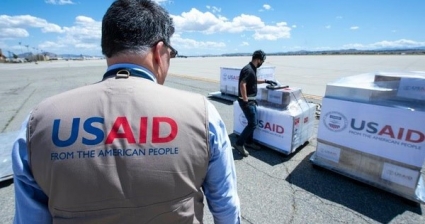
USAID - Vietnam’s MONRE Sign Memorandum of Understanding
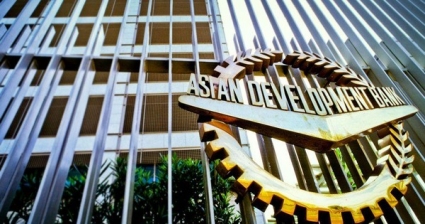
ADB to Develop Prototype for Cross-Border Securities Transaction System Using Blockchain
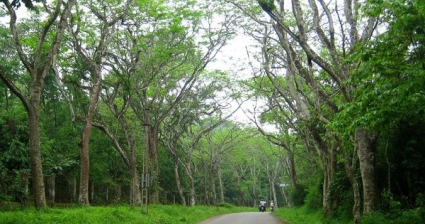
HSBC Vietnam Commits to Arranging US$12 Billion to Green Vietnam
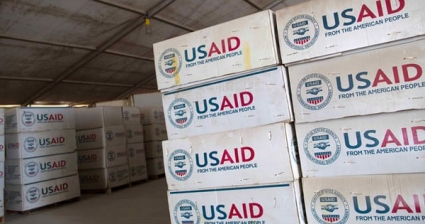
USAID Launches Project to Improve Private Sector Competitiveness in Vietnam
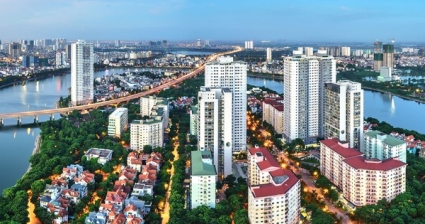
Vietnam’s Economy Faces Near Term Uncertainty, Economists Say

Official Announcement Vietnam Open Innovation Landscape Report 2021
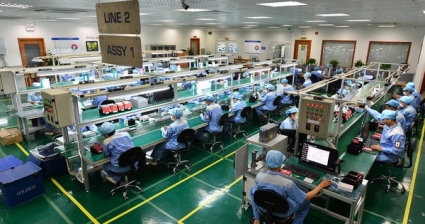
Vietnam’s Economic Growth Expected to Accelerate to 5.5% in 2022 and Greening its Trade Would Offer New Opportunities: World Bank
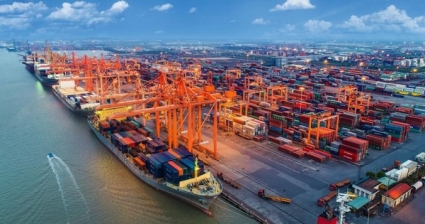
Standard Chartered Forecasts Vietnam 2022 GDP Growth at 6.7%
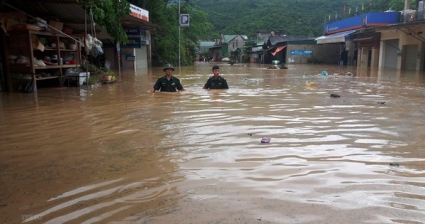
World Bank Credit to Strengthen Infrastructure, Boost Climate Resilience in Vinh Long City
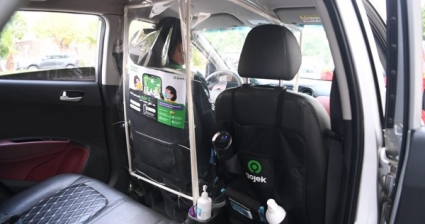
Gojek Launches GoCar in Hanoi, Equipping All Cars with Protective Shields and Air Purifiers
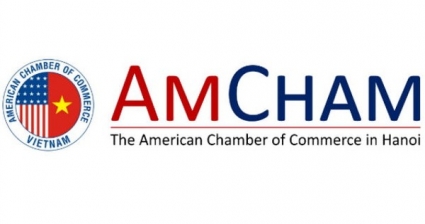
AmCham Selects New National Chair for 2022
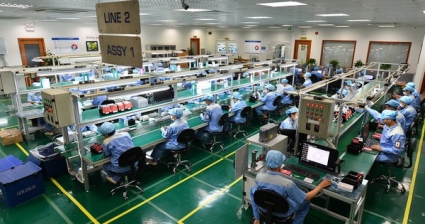
Vietnam Likely to Have Current Surplus in 2022, HSBC Says
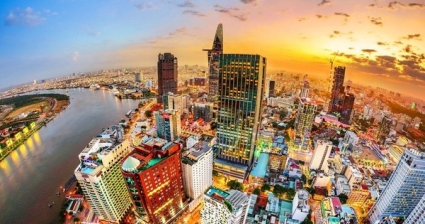
Vietnam’s Ability to Weather External Shocks Has Faded in 2021, HSBC Says
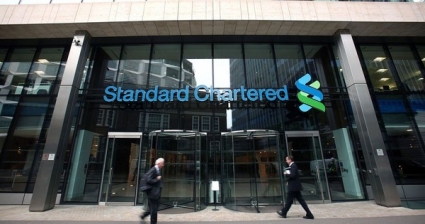
Fitch Affirms Outlook on Standard Chartered Vietnam at Positive
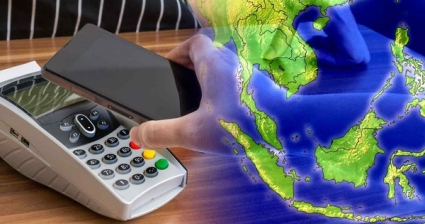
New ADB Facility to Help South East Asia Revive Tourism and Boost Sustainable, Inclusive Investments
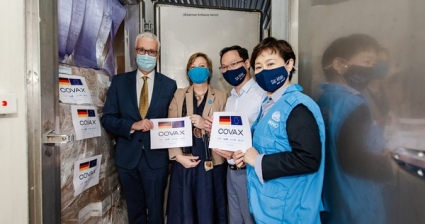
Germany Supports Vietnam with Another 2.6 million Vaccine Doses

Wave Energy Could Power Vietnam’s Islands, But Start-Ups Need USAID’s Help

Fitch Upgrades Asia Commercial Joint Stock Bank to 'BB-'; Outlook Stable

Fitch Upgrades Vietinbank's Viability Rating to 'b'; Affirms IDR at 'BB-'; Outlook Positive




